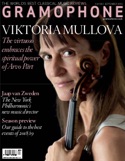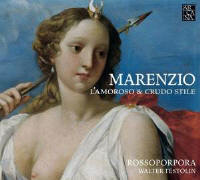Texte paru dans: / Appeared in: |
|
|
Outil de traduction (Très approximatif) |
|
|
Reviewer:
Alexandra Coghlan If Monteverdi was the midwife of the Italian madrigal – ushering it into the new musical world of the Baroque – then Marenzio was its mother. At his early death in 1599 the composer left almost 500 madrigals, published in 23 collections. The evolving style of these works tells a story not just of personal stylistic growth but also of shifting priorities and fashions in Italian music at the turn of the 17th century. The number of recordings of his music has recently been swollen by a number of high-profile releases from ensembles including La Venexiana, The Consort of Musicke and Concerto Italiano. While most of them focus on a single collection – a snapshot of a musical moment – the young Italian group RossoPorpora offer a programme spanning nearly 20 years, taking us from the ‘fragrant’ early madrigals of 1580 to the more introspective complexity and dissonance of those from the 1590s. The group’s tone, set by its bloomy, pastel-coloured sopranos, has absolutely no sharp edges. While this soft-focus approach brings out the ‘lightness, transparency and lyricism’ that the conductor Walter Testolin identifies in Marenzio’s early works in his booklet note, it serves the later less well. So while Venus’s descent from heaven in ‘Scendi dal paradiso’ is deliciously fresh and dewy – a pastoral fantasy of rare beauty – ‘cruel, bitter and inexorable’ death steals upon the singers in ‘Crudele, acerba, inexorabil morte’ with a little too much gentleness, transforming a work as startling harmonically as anything Gesualdo ever produced into something too affirmative. With such a dramatic evolution, perhaps each period of Marenzio is best served by a different ensemble. The chaste asceticism of La Compagnia del Madrigale, challenged in the early books, would come into its own in the Ninth Book of 1599, while Concerto Italiano and La Venexiana’s meaty sensuality make sense of the middleperiod works, and RossoPorpora’s filmy beauty gilds the early madrigals with an irresistible glow. |
|




